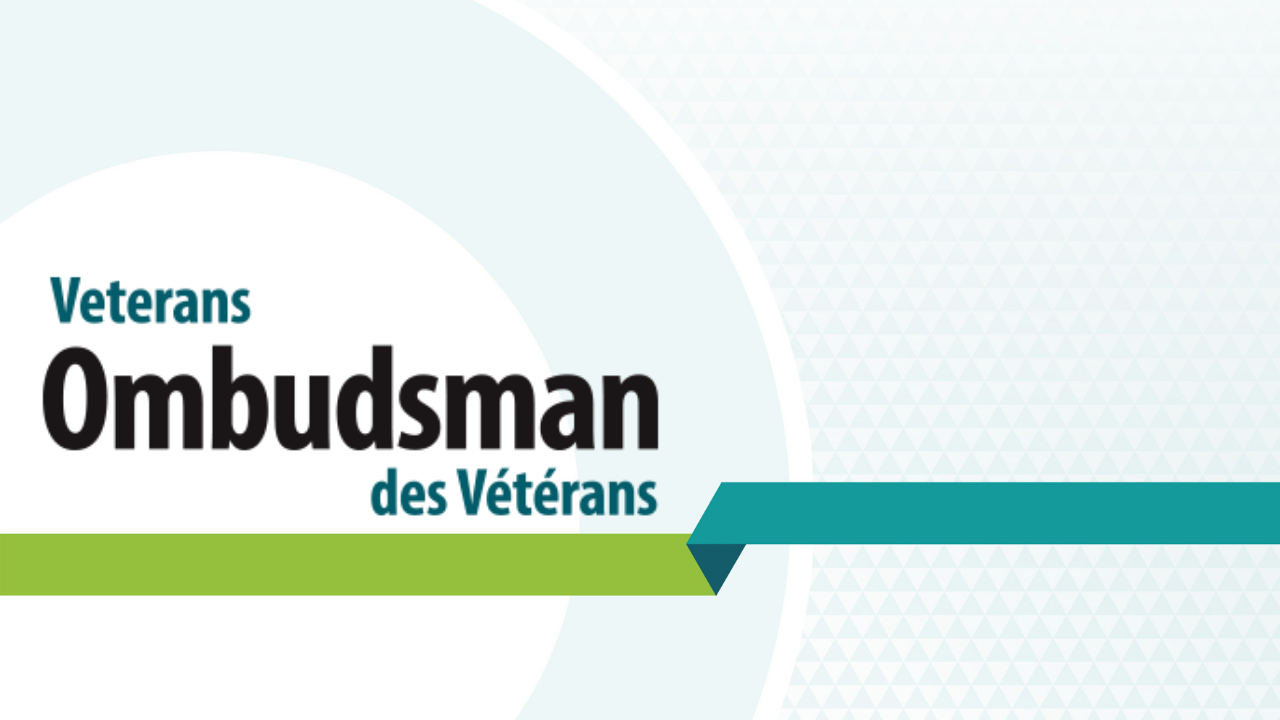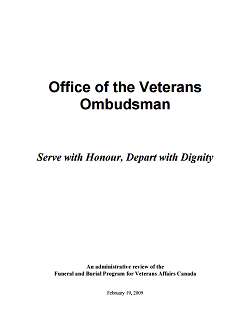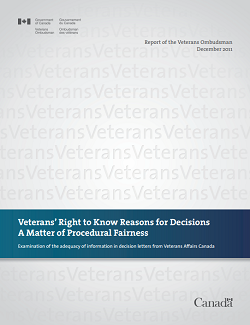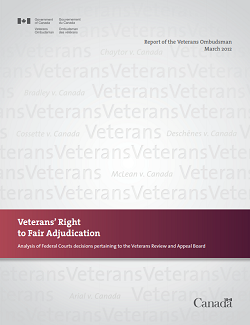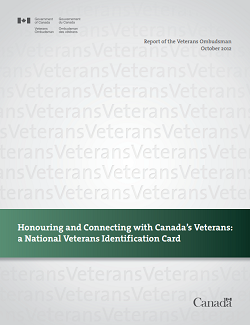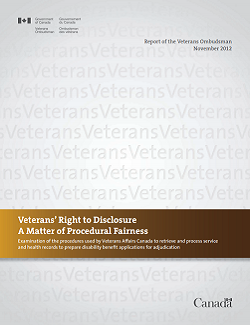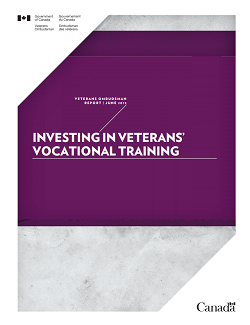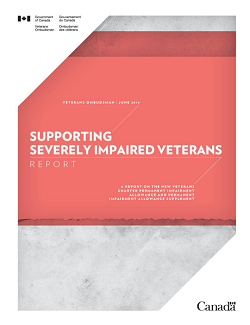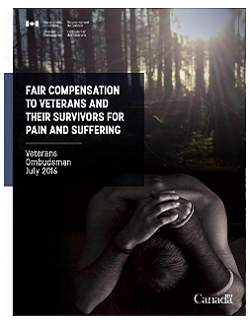Status of Veterans Ombudsman Recommendations - 2009 to 2016
Current as of February 27, 2017
Legend
| Report | Recommendation | Status |
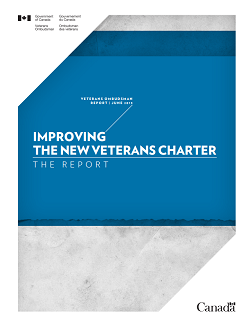 |
Financial Support – Economic Benefits 1. Providing additional financial support after age 65 to eligible totally and permanently incapacitated Veterans to ensure that their monthly benefits are no less than 70 percent of their indexed pre-release salary. |
 |
| 2. Increasing the Earnings Loss Benefit to 90 percent of pre-release salary. |  |
|
| 3. Providing the same Earnings Loss Benefit to former part-time Reserve Force members whose injury or illness is related to service. |  |
|
| 4. Calculating the annual cost of living adjustment to the Earnings Loss Benefit based on actual annual increases in the cost of living as measured by the Consumer Price Index. |  |
|
| 5. Providing the Permanent Impairment Allowance and Permanent Impairment Allowance Supplement benefits to all totally and permanently incapacitated Veterans who are in receipt of a Disability Award and an approved rehabilitation plan for the condition that is causing the total and permanent incapacity. |  |
|
| Financial Support – Non Economic Benefits 1. As a first step, increasing the maximum amount of the Disability Award to the maximum judicial cap for non-pecuniary damages awarded by Canadian courts. |
To be Implemented April 1, 2017 | |
| 2. Conducting a comprehensive review, including consultations with Veterans’ stakeholders, to determine what the appropriate maximum amount should be to fairly compensate Canadian Armed Forces members and Veterans for pain and suffering resulting from an injury or illness in service to Canada. | OVO completed a review – 3 new recomm. below | |
| 3. Reviewing the adequacy of the $500 provided for financial counselling. |  |
|
| Vocational Rehabilitation and Assistance Support 1. Instructing the Department to develop appropriate program measurements to effectively monitor Veterans' progression and success in completing their Individual Vocational Rehabilitation Plan, including subsequent employment. |
 |
|
| 2. Amending the Canadian Forces Members and Veterans Re-establishment and Compensation Regulations to ensure that all costs associated with post-secondary education are paid. |  |
|
| 3. Instructing the Department to amend its policies relating to vocational rehabilitation and assistance to ensure that the Canadian Forces Members and Veterans Re-establishment and Compensation Regulations are liberally interpreted with regard to the cost and duration of an Individual Vocational Rehabilitation Plan. |  |
|
| 4. Instructing the Department to amend its policies relating to vocational rehabilitation and assistance to ensure that the Canadian Forces Members and Veterans Re-establishment and Compensation Regulations are liberally interpreted to allow more flexibility for Veterans to acquire new skills and higher education while also taking into consideration the Veteran's aptitude and motivation in the development of an Individual Vocational Rehabilitation Plan. |  |
|
| 5. Increasing partnership opportunities to better help Veterans obtain good paying civilian jobs, in collaboration with the Minister of National Defence. |  |
|
| 6. Undertaking an independent review of the dual SISIP Financial Services and Veterans Affairs Canada income support and vocational rehabilitation programs to determine whether the current construct is effective, in collaboration with the Minister of National Defence. |  |
|
| Family Support 1. Providing proper counselling, information, communications and outreach to families. |
 |
|
| 2. Extending access by families to Military Family Resource Centre programs after the medical release of the Canadian Forces member, in collaboration with the Minister of National Defence. |  |
|
| 3. Harmonizing Canadian Forces and Veterans Affairs Canada financial assistance provided to families. |  |
|
| 4. Developing a caregiver compensation program to compensate the spouse or family member who acts as the primary caregiver to a seriously disabled Veteran. |  |
|
| 5. Providing the same access to the Treasury Board Pensioner Dental Service Plan to Veterans and their families as that provided to them by Veterans Affairs Canada under the Public Service Health Care Plan. |  |
|
| 6. Eliminating the time limit for surviving spouses to apply for vocational rehabilitation and assistance services. |  |
